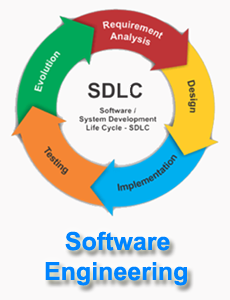Risk ManagementAnalysis in Software Engineering
Risk Management Analysis in Software Engineering
Risk Analysis in project management is a sequence of processes to identify the factors that may affect a project's success. These processes include risk identification, analysis of risks, risk management and control, etc.
In any software, using risk analysis at the beginning of a project highlights the potential problem areas. After knowing about the risk areas, it helps the developers and managers to mitigate the risks. When a test plan has been created, risks involved in testing the product are to be taken into consideration along with the possibility of the damage they may cause to your software along with solutions.
How to perform Risk Analysis?
There are three steps to perform risk analysis they are given below.
- Searching the risk
- Analyzing the impact of each individual risk
- Measures for the risk identified
Quantitative risk analysis
It is the procedure of numerically analyzing the effect of identified risks on overall project objectives. In order to minimize the project uncertainty, this kind of analysis are quite helpful for decision making.
The inputs for qualitative Project Risk Analysis and Management includes
- Risk management plan
- Scope baseline
- Risk register
- Enterprise environmental factors
- Organizational process assets
The output of this stage would be: - Project documents updates

